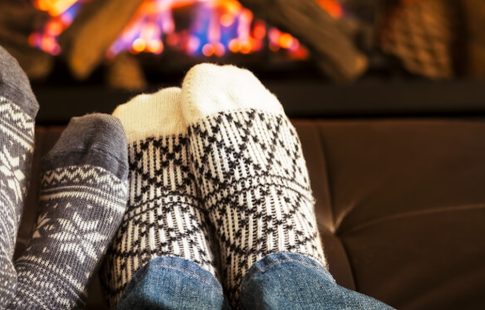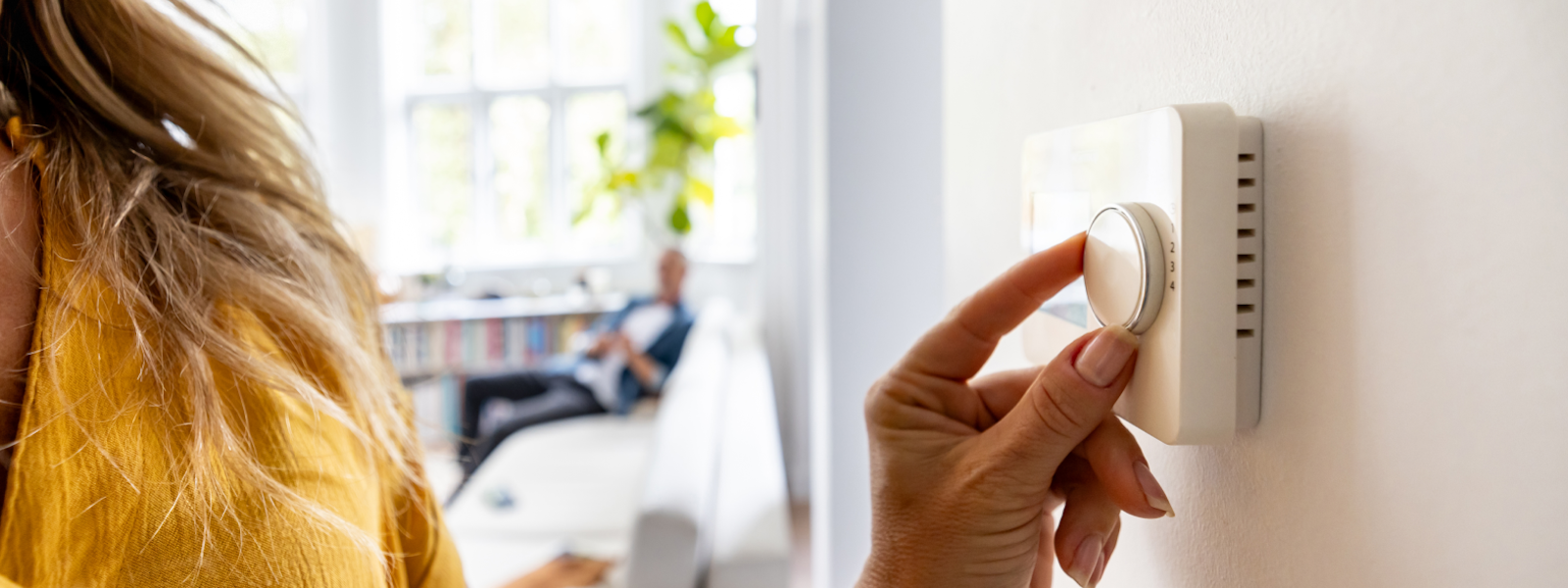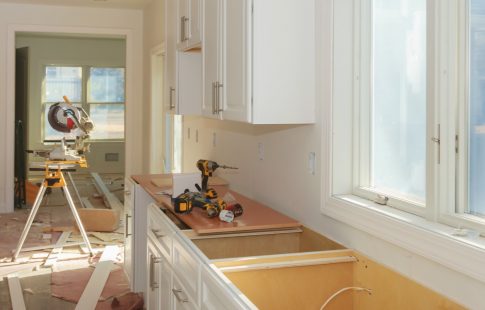We’re entering the heart of summer, so your air conditioner is probably running, putting your electricity bill top of mind. Luckily, there are ways to beat the heat. Read on for 5 summer energy-saving tips, plus details on programs that may save you even more money.
1. Set your thermostat correctly
One of the most effective ways to reduce your energy usage is to be smart about your thermostat settings. According to the U.S. Department of Energy (DOE), you could save as much as an estimated 10% on cooling (and heating) by setting your thermostat back 7°–10°F from its usual setting for 8 hours a day.
One easy strategy is to set your thermostat to keep your house warmer while you’re sleeping or away. To simplify the process, you can use a programmable thermostat to automatically adjust temperatures on set days and times.
2. Stay up-to-date on your HVAC maintenance
A second way to keep your costs down is to make sure you maintain your HVAC system. The DOE reports that over 40% of a home’s utility costs usually goes to cooling and heating alone. That said, having your system serviced in the spring can help ensure it’s running at top efficiency in the summer.
Additionally, the U.S. Environmental Protection Agency (EPA) recommends replacing your cooling system with a heat pump that’s certified by ENERGY STAR. Despite their name, heat pumps can function as air conditioners, too. You may want to consider this option if your current system is more than 12 years old or you’re ready to replace it.
Finally, you can also save energy by replacing your system’s air filters every 30 to 60 days in the summer, says Energy.gov. A dirty air filter means your HVAC system will have to work harder to keep you cool, wasting energy.
3. Check your windows
Your windows can make a huge difference in your summer electricity bills. If there are air leaks, they let hot air inside during the summer, which makes your HVAC system work less efficiently. Air leaks can be fixed by applying weatherstripping or by sealing air out with caulk.
You may also want to replace older windows with windows certified by the ENERGY STAR program. These windows have “invisible coatings that block solar heat.” As a result, ENERGY STAR-certified windows can reduce home energy bills by 12% on average nationally, according to the EPA. But if you’re not ready for a major home improvement, low-cost options like heat-blocking curtains can help, too.
In addition to sealing air leaks in your windows, you may want to look at improving insulation in your home. The EPA estimates that “homeowners can save an average of 15% on heating and cooling costs (or an average of 11% on total energy costs) by air sealing their homes and adding insulation in attics, floors over crawl spaces and basements.”
4. Change the direction of your fans
Did you know that the direction your fan turns can make a difference in cooling your home? In the summer, fans should turn in a counterclockwise direction for maximum energy savings.
When everything’s said and done, a ceiling fan can enable you to set your thermostat about 4°F higher and stay comfortable. That can translate into easy summer electricity savings. Setting a thermostat just 2 degrees higher can save as much as 14% in energy costs, according to the DOE.
5. Decrease your water heater’s energy use
For more energy savings, try lowering your water heater’s temperature from 140°F to 120°F. In addition to helping your electricity bill, it can reduce the risk of scalding and slow build-up in your pipes.
One electric company, Direct Energy, offers these tips for reducing costs:
- Leave your water heater’s temperature setting at 120oF
- Lower the temperature before going on a trip
- Use cold water to wash your clothes
- Install water-saving shower and sink fixtures
- Add insulation to hot water pipes
How to get the most summer energy savings
In the end, the best route for keeping your summer electricity bills down is to aim for as many of these fixes as possible. According to the DOE, tackling these four areas combined could result in 20–50% energy savings:
- Thermostat programming
- Cooling and heating system maintenance
- Insulation
- Sealing air leaks
How to get help paying for energy efficiency improvements
Making the most of some of these summer energy savings tips will involve upfront costs. Fortunately, there are assistance programs and tax credits you may qualify for to help.
As an example, the DOE helps low-income households reduce their energy costs through its Weatherization Assistance Program (WAP). Homeowners reportedly save $372 annually on average through the program. You can learn more about applying for WAP here.
Additionally, the Department of Health and Human Services (HHS) has a Low Income Home Energy Assistance Program (LIHEAP). Its services include support for weatherization and equipment replacements or repairs. You can learn more and see if you qualify by visiting the LIHEAP Clearinghouse.
Depending on where you live, you may also qualify for a rebate for energy efficiency and appliance upgrades. You can learn more about the program on the Department of Energy’s Home Upgrades page.
How Mr. Cooper can help
Summer heat isn’t going away, but by taking proactive steps, you can stay cool while saving some cool cash. And if you’re thinking about a big home improvement, a Mr. Cooper home equity loan or cash-out refinance could potentially boost your budget. To learn more about your options, talk to one of our Mortgage Professionals at 800-765-9194 or get started online.
Any third party trademarks and tradenames used on the Mr. Cooper® Blog are the property of their respective owners. Nationstar Mortgage LLC d/b/a Mr. Cooper is not affiliated, associated, or sponsored by any of these owners. Use of these names and trademarks is not intended to and does not imply endorsement, but is for identification purposes only. Information provided does not necessarily represent the views of Mr. Cooper. Information is subject to change without notice.







